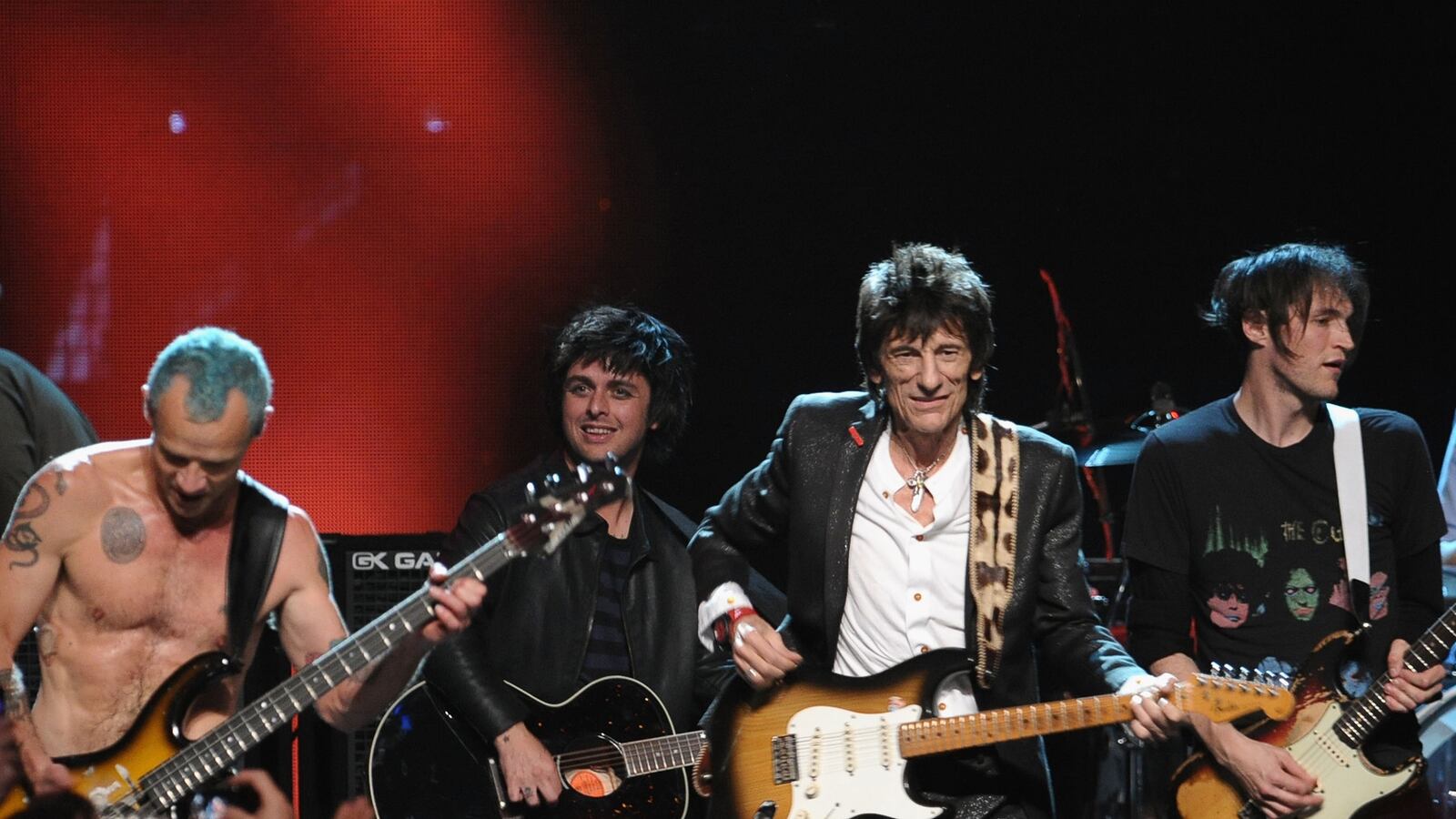
If you’ve got anything going on in your life—Christmas shopping, binge-watching Geraldo at Large, a slight burning sensation during urination—you probably missed this week’s announcement about the latest crop of inductees into The Rock and Roll Hall of Fame. No one blames you, America. The pyramid-shaped museum has been inducting—entombing might be a better word—honorees since 1986, and its annual press release stirs about as much excitement these days as a deep track from Emerson, Lake & Palmer’s Brain Salad Surgery.
This year’s honorees feature the usual oldies-show cavalcade of the clinically dead (Nirvana’s Kurt Cobain, the Beatles’ manager Brian Epstein) and the career dead (Nirvana bassist Krist Novoselic, Linda Ronstadt, whose Parkinson’s disease has forced her retirement); guys who used to wear flower pots on their heads (Peter Gabriel) and guys who used to dress up in makeup and platform boots (Kiss); a hippie-peacenik-turned-radical-Islamist (Cat Stevens, who converted to Islam and publicly supported the Ayatollah Khomeini’s death sentence against Satanic Verses author Salman Rushdie); and Hall & Oates.
I’ve got two main objections about the Rock and Roll Hall of Fame, one more ideological and one more philosophical. And lest anyone think these the natterings of a rock-hating jazzbo or classical music snob, let me state for the long-playing record that I am second only to Joan Jett in my unconditional love of rock and roll. In fact, I suspect that I contracted a yet-to-be identified strain of hepatitis from obsessively reading the 1977 Kiss Marvel comic that was actually printed in the band’s own blood.
As a libertarian, I’m opposed to using tax dollars to fund non-essential functions of government, a category that surely describes rock music. Yet taxpayer dollars helped to build the Hall, which just ain’t right. If rock and roll is doing its job, it should be an enemy of the state, not the recipient of its largess. Indeed, one of the greatest things about rock—and let’s use the term as broadly as possible, to cover virtually all forms of popular music—is that it didn’t need NEA grants or state-supported artists’ colonies to shake, rattle, and roll. The only government subsidy rock music got was an indirect one: The nation’s schools bored so many kids that they begged, borrowed, or stole instruments and headed to the nearest garage or bedroom to learn how to express their anger, rage, and frustrated dreams and hopes.
The main reason that the Hall is located in Cleveland is precisely because elected officials back in the 1980s generously pledged to blow $65 million in other people’s money on the museum. Forget all that b.s. about how the hall just had to be in Cleveland because rock started there, the disc jockey Alan Freed popularized the term rock and roll there, yadda yadda yadda. Cleveland is such a low-wattage destination they don’t even hold the Hall’s induction ceremonies there. The taxpayer subsidy continues still, according to the Hall’s 2011 annual report (PDF) (the latest available online). Fully 15 percent of “contributed operating revenues” come from the government.
My philosophical objection is related though distinct from my ideological one. If rock shouldn’t be supported by the state, it also doesn’t need anything like an official hall of fame (even one that might provide shelter and a working bathroom for the presumably now-homeless Hall & Oates). Rock provided the very soundtrack for the baby boom generation’s long, tedious slog against the regimented, bourgeois expectations of their parents. Tune in, turn on, drop out, and all that. And yet it’s the baby boomers—especially Hall of Fame and Rolling Stone mag founder Jann Wenner, arguably the archetypal example of ‘60s-style pseudo-rebellion against the status quo—who felt a need to create the ultimate arbiter of establishment value. Who knew that all those freak flags being flown back in the day were really surrender flags and that rock stars were just as desperate to be certified as “hall of famers” as football players and professional bowlers?

When Jean-Paul Sartre was offered the Nobel Prize in Literature in 1964 (the year the Beatles invaded America), he refused it, saying that he rejected official honors and that he didn’t want to be “institutionalized,” lest his writings lose some of their power. To date, there have been a handful of rock-and-roll refuseniks who have followed the French Stalinist’s lead and said no on principle. Jerry Garcia boycotted the Grateful Dead’s induction because he thought the idea of a rock hall was stupid. In 2006, the Sex Pistols’ Johnny Rotten faxed a note on behalf of the band declining the honor. “Next to the SEX-PISTOLS,” it read, “rock and roll and that hall of fame is a piss stain.”
But such displays are exceptionally and appallingly rare. And there is no chance that you’ll see anything like that come April 10 in New York City (not Cleveland, of course), when the class of 2014 takes the stage for its Hall of Fame bows.





